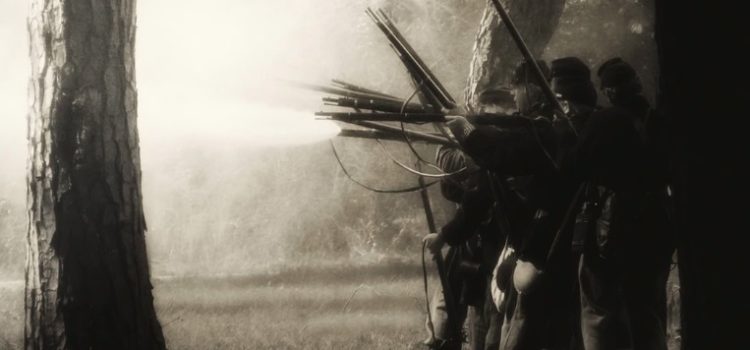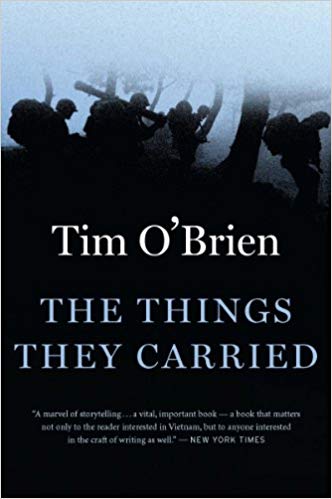

This article is an excerpt from the Shortform summary of "The Things They Carried" by Tim O'Brien. Shortform has the world's best summaries of books you should be reading.
Like this article? Sign up for a free trial here .
What happens in “In the Field” in The Things They Carried? How does “In the Field” demonstrate how soldiers deal with blame on the battlefield?
We’ll look at the basic elements of the chapter “In the Field” (The Things They Carried) and look at why death in war is simultaneously no one’s fault and everyone’s fault.
“In the Field” in The Things They Carried
In the chapter “In the Field” in The Things They Carried, the unit had been camped out in a field on a stormy night, which turned the dirt to mud. They had been warned away from camping in this particular field by the locals, but their warnings went unheeded, with First Lieutenant Cross even chasing the villagers away with rifle fire. Norman remembers the awful, all-consuming smell of this field, and how the rain covered the men in the filth. They realized that they had settled down into a sewage field and were mired in human waste.
Kiowa’s hit by enemy gunfire and he drowns in the waste.
This chapter of The Things They Carried, “In the Field,” starts with the next day, when the men begin the mournful search for Kiowa’s body in the sewage field. Their boots sink into the filth as they wade through, trying to cover as much ground as they can. Eventually, they find Kiowa’s pack, containing a pair of moccasins and an illustrated New Testament.
Later in “In the Field” in The Things They Carried, they find Kiowa’s submerged body, which requires several men to dig out from the muck. Finding the body causes the men to reflect on the random nature of life and death in Vietnam. What happened to Kiowa could just as easily have happened to any of them. Even Azar is driven to a moment of introspection after the incident. While earlier in the day he had been cracking jokes about Kiowa being “buried in shit,” he later tells his comrades, “Those dumb jokes—I didn’t mean anything.” After finding the pack, Mitchell Sanders becomes enraged at what he perceives as Lieutenant Cross’ incompetent decision to encamp the company in a sewage field, arguing that he ought to have exercised better field discretion and found a safer place for his men to spend the night.
Cross, meanwhile, is stricken with guilt at losing another man under his command. He knows that he ignored the warnings from the villagers (and from Sanders) to avoid that field. It is his mistake, he believes, that killed Kiowa. He silently laments the loss of Kiowa, remembering him as an upstanding young man who deserved far better than the fate he met. In writing to Kiowa’s father, Cross is unable to tell him the true awful and disgusting circumstances of his son’s death.
In the chapter “In the Field” in The Things They Carried, Cross observes to himself that a death always leads to an assessment of responsibility, a search for who or what is to blame. It could get very abstract and disconnected from the proximate events in the field—you could blame the politicians and generals who started the war, the American voting public, God, the military-industrial complex, or any number of other “responsible” parties. But in the field, the larger sociopolitical or theological context doesn’t matter: a single stupid decision (like Cross camping in the sewage field or O’Brien switching on his flashlight) could lead to a man getting killed. Kiowa’s death is simultaneously no one’s fault and everyone’s. This is the theme of “In the Field” in The Things They Carried and a main theme of the book.
———End of Preview———

Like what you just read? Read the rest of the world's best summary of "The Things They Carried" at Shortform . Learn the book's critical concepts in 20 minutes or less .
Here's what you'll find in our full The Things They Carried summary :
- What the Vietnam War was like for soldiers on the ground
- How Vietnam soldiers dealth with the psychological stress of death around them
- How fictional stories can be truer than the truth






